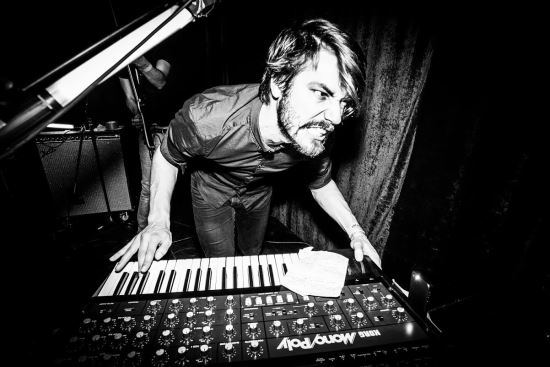Photo by Leon Backer
The English stereotype of Belgium is that it is a boring country. This attitude stems from laziness, ignorance and a stubborn lack of appreciation for quite-flat geography. Historically speaking, Belgium is a relatively new country and has always hosted a multilingual mish-mash of identities. So why bother trying to engage with, investigate or explore that level of complexity in any kind of constructive detail when we can simply write-off the entire nation as fundamentally dull? Also, Brussels is the de facto capital of the EU and they’re always forcing us to outlaw Christmas, re-label our sausages and follow basic safety procedures. Or something. Belgium has been the butt of jokes by everyone from Monty Python, through Not The Nine O’Clock News and The Hitchhiker’s Guide To The Galaxy, to a recent article on the News Biscuit website, and not particularly sophisticated jokes at that.
Without even scraping the surface of Belgium’s hundreds of varieties of beer, mammoth production of bande dessinée, statues of young boys pissing, its Atomium building, castles, churches and transport systems, the works of George Simenon, René Magritte, Jacques Brel and more, Jean Claude Van Damme’s existential monologue from 2008’s JCVD, or the fact that no Belgian home looks even remotely similar to any of its neighbouring abodes, I am very pleased to report that the Belgian music scene is far from dreary. Here’s what else can be learned from a trip to Glimps Festival:
Belgian musicians are phenomenal multitaskers
If I’ve understood all the connections correctly, the vocalist from Ghent’s experimental noise-rock mavericks Raketkanon also sings in the more traditional grungy three-piece Kapitan Korsakov. Kapitan Korsakov’s drummer plays in another trio, a hairy, raucous and bluesy Jesus Lizard-like combo known as The K. Similarly, members of Hasselt-based psycho-rockers The Guru Guru also form part of the instrumental band Statue, and one member of both The Guru Guru and Statue recently started another concurrent project, an indie-rock affair known as Manners. That’s just the tip of the iceberg, the full extent of which would give the person who draws those ‘Rock Family Tree’ charts a complete nervous breakdown. You’d think that by having their fingers in so many pies, Belgian musicians might suffer indecision, lack of focus, split loyalties, overwork, burn out and heaps of other related problems and impracticalities but, no, as far as I can tell, collaborative camaraderie is high and the quality of releases and tightness of performances are not being diluted. Shame on all our lazy UK musicians who play in just one measly outfit.
Having only just returned from energetically touring Raketkanon’s second record, Pieter-Paul Devos has wasted no time in immediately resurrecting his older project. While not quite as mischievously experimental as Raketkanon, Kapitan Korsakov are almost as equally thrilling. A hard-rock trio in the Nirvana mould, with extra elements of industrial sonic weirdness and post-rock guitar work, Kapitan Korsakov kick off their set by debuting a bunch of brand new songs, with the crowd lapping them up as if hearing several consecutive ‘Smells Like Teen Spirit’s for the first time. Perhaps some of them are sneakily recording the fresh cuts, which Devos doesn’t mind, as long as they don’t post them on "the fucking internet." Whether making use of effects or just his vocal range, Kapitan Korsakov’s restless frontman is always manipulating his voice in really interesting ways and in this group, unlike Raketkanon, he does it while scratching out wicked guitar licks at the same time. They can take it down a notch too, as demonstrated by a goosebump-raising rendition of epic ballad ‘In The Shade Of The Sun’. For their more typically frantic tracks, Devos variously collapses to his knees, leaps into the crowd, smashes his guitar on the floor and shakes his head around as if his moppish hairdo’s besieged by a swarm of sweat-hungry wasps. Whatever dark arts are driving his creativity, whichever kind of deal he’s made with a hoofy-footed red bloke at a crossroads in rural Flanders, this guy is a bona fide rock star, and a supremely talented one to boot.
… And Stefanie Mannaerts is another of their most impressive multitaskers
Stefanie Mannaerts, who used to be a member of The Spectors, now plays in the electro-space-rock combo Raveyards as well the darkly philosophical synth-pop outfit Rumours, led by Hannah Vandenbussche. Not fatigued by that level of activity, Mannaerts also drums and sings in gothy-punky-metally trio Brutus. After Raveyards’ set of immersive sonic wizardry, Brutus storm their way through 40-minutes of crashing, urgent, tightly structured alt-rock. Mannaerts’ voice has a haunted, aching quality to it, maybe because she’s channelling some raw emotions, or perhaps because anybody who smashes the drums as hard and fast as she does while also staying on track with spitting out lyrics is going to sound a little bit fraught.
Mannaerts’ drumkit is situated stage-left, in profile. Her microphone hangs to her side, so she turns her neck to face the audience when singing. Clearly, Brutus have given consideration to the crucial visual element of their live show, to make sure it’s not too static and nothing like The Eagles. Complementing the way Mannaerts bounces around on her stool, whirling her arms with a deadly precision, extra movement is provided by the energetic lunging of tall bassist Peter Mulders, while the more enigmatically shoegazing Stijn Vanhoegaerden concentrates on churning spiky, textured riffs out of his six-string. Towards the end of the final song, Mulders and Vanhoegaerden discard their instruments and depart, leaving Mannaerts alone to repeat the final line of the song unaccompanied. It’s a magical, powerful climax from a supremely accomplished and distinctive young group.
Hypochristmutreefuzz make lunatic-rock you can dance to
For a shamefaced Englishman such as myself, it’s always a pleasure to visit a country whose population can enjoy consuming beer without descending into lairy bellowing and mindless violence. Granted, while I walked back to my hotel passing almost eerily civilised late-night drinkers, I did notice a couple of patches of pavement vomit but, judging by the colour, texture, splatter radius and visible chunks of half-digested Scampi Fries, I’d say they’d been expelled from the stomach of a fellow tourist.
While the locals remain sober (or at least well behaved), it’s also noticeable that they don’t move around much at shows. At home I often feel self-consciously motionless in a sea of dancing, moshing, headbanging revellers. Here, the slight nodding of my noggin to the beat or swaying of my shoulders to the flow of the rhythm contrasts somewhat flamboyantly with my fellow gig-goers, many of whom stand staring politely at the performers, exerting less motion than an Antony Gormley beach statue. I’m informed that the Flemish can be a shy and reserved people and there’s certainly nothing wrong with that. I’d rather that introverted extreme than the other end of the barometer, which you get here in the UK, with those wazzocks who think that the gig is all about them so they turn their backs on the band, face the audience, remove their shirts to reveal their sweat-drenched man-torsos and nonconformist Avenged Sevenfold tattoos and shout "YEAH, COME ON" and do some air-guitar and then kick you in the face when they crowdsurf.
However, Hypochristmutreefuzz are so devilishly fun that they even get the reticent Flemish fans dancing. Named after an avant-garde jazz piece by Misha Mengelberg, Hypochristmutreefuzz are the latest chapter in that long tome of rock ‘n’ roll weirdos that dates back from Beefheart, through Pere Ubu, The Residents, Butthole Surfers and Mr Bungle to the new cream of Belgian noise-rock pioneers. Their debut EP was an unhinged, meaty affair but it’s newer song ‘The Spitter’ that really inspires the audience to get shuffling. Less evil and fuzzy than their prior work, it’s kind of a pop song, relatively speaking, or an attempt at a pop song, or a sarcastic pop song at least, with its falsetto verses and jaunty keyboard refrain. Naturally, these five oddballs can’t bring themselves to sustain such commerciality and the track does descend, quite wonderfully, into sprawling, cathartic noise, by which time their audience is fully, physically committed to the freaky ride. With a unique lighting set-up – barely any stage lights, with each band member lit by their own individual lamps, which are flickered on and off at the keyboardist’s controls – their show is such a hoot that, when it’s announced that they’ll be playing a bonus second set as a replacement for an absentee act, I gladly go to watch them again. It’s like an early hypochristmupresent.
Glimps isn’t just about Belgium
Although it’s the Belgian musicians who really draw the attention, Glimps also showcases acts from Switzerland, Holland, France, Norway, Italy, Germany, Latvia, Iceland, Sweden, Denmark, Ireland and Britain. Nor is the festival predominantly rock-based, as its line-up boasts various indie, pop, dance and jazz acts. Glimps’ diverse range of venues includes record shops, cafes, bars, halls, small theatres and even one of Ghent’s many majestic churches. Berlin-based Canadian expats Nadja perform in the 130-seater Lakenmetershuis, which was built in the late eighteenth century. Luckily, their thunderous, multi-textured drone-rock doesn’t bring the old building tumbling to the ground, even if their single, glacial 45-minute track does inspire a handful of lily-livered, earplug-lacking punters to flee for the exit. Personally, I love a comfy-seated drone-rock concert and as Aidan Baker and Leah Buckareff slowly weave their king-sized sludgegaze blanket with two guitars and a tableful of pedals, I willingly let the waves of their vibrations lull me into a properly zonked-out state and already start to dream of visiting this absorbing place next year too.
<div class="fb-comments" data-href="http://thequietus.com/articles/19475-things-learned-at-glimps-2015-review” data-width="550">



